repairData - My First R Package at CRAN
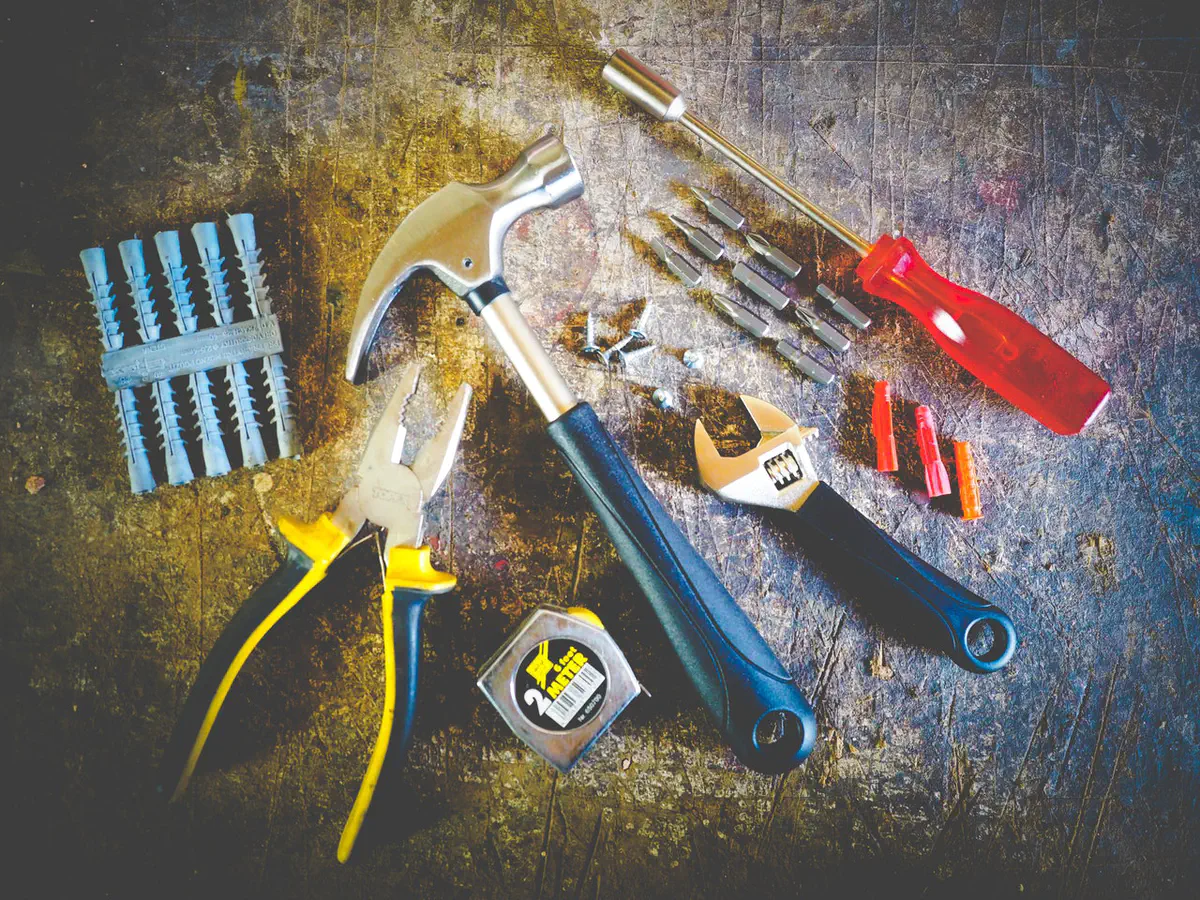 Photo by energepic.com from Pexels
Photo by energepic.com from PexelsR Packages book as a valuable assistance
I am pleased: repairData is on
CRAN
(The Comprehensive R Archive Network!
repairData is my first
package; offers only five data sets and is therefore not a brilliant
feat. The real achievement for me was that I successfully completed the
complex submission process for the first time. Without R
Packages, the still not finished but already
publicly accessible 2nd edition by Hadley Wickham
and Jenny Bryan, I wouldn’t have succeeded –
at least not relatively easy on my second trial.
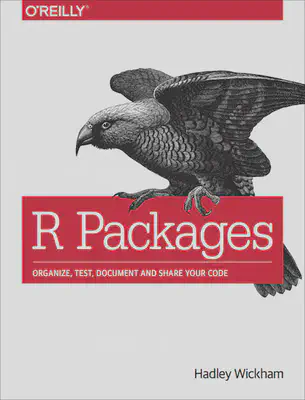
Goal of the datasets
repairData offers the dataset of the Open Repair
Alliance (ORA), from February 21, 2021. The
data set corresponds to the Open Repair Data
Standards (ORDS) developed by the ORA
in its last version, 0.2.1.
Data from five providers can currently downloaded separately from the Open Repair Alliance (ORA) website. When I developed repairData, I thought that it would be an advantage for users if they had the data already aggregated and available. Users can separate the different databases again via the “Data provider ID” category.
On the GitHub repository of the Open Repair Alliance, I also found four other data sets on batteries, printers, smartphones, and tablets. Data sets with the corresponding categories were extracted from the database and examined separately as part of a concerted online campaign.
The main aim of these excerpts is to find out the causes of the defects and what obstacles arose during the repair. At the repair events, there is usually not enough time to investigate such more targeted questions. In principle, these database extracts differ from the primary data record only by an additional column to categorize the errors.
The goal of the various initiatives in the ORA is to collect repair data in a standardized manner and make them publicly available. The dataset should provide evidence of shortcomings in our affluent society: Planned obsolescence, wasted energy, filigree construction, and limited access to repairs. The collected data should help build up pressure against companies and the government for changes in production and regulations.
Five data providers
The five organizations of the ORA are:
Repair Café International
The Dutch journalist Martine Postma started the Repair Café movement by establishing the first Repair Café on October 18, 2009, in Amsterdam. On March 2, 2010, the Repair Café International Foundation was founded as an umbrella organization based in Amsterdam. There are now 2196 members (Repair Cafés) in this network worldwide. 23,048 data sets, almost half of all data, come from this network alone.
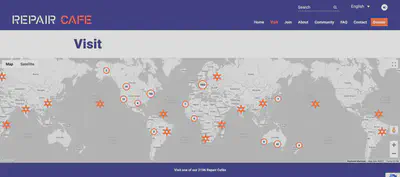
Community repair data is collected for the Repair Café International foundation via the RepairMonitor platform. The RepairMonitor is the online tool for collecting and sharing repair data. The Repair Café International website has an excellent 2-minute video that explains repair customers’ processes in the repair cafés.
anstiftung
anstiftung is a non-profit foundation based in Munich that, in addition to repair initiatives, also promotes other movements to revitalize neighborhoods or interventions in public spaces, such as intercultural and urban gardens, open workshops, and open source projects.
anstiftung is also active as a funding company. It researches, publishes, and organizes the independent German network of over 1,000 repair initiatives. Repair cafés are held online continuously (weekly!)
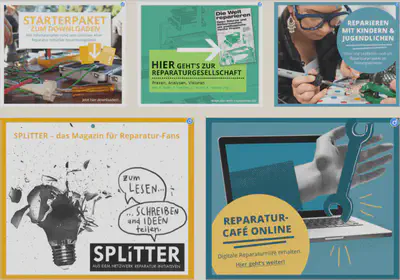
The community repair data will be collected in the repair initiatives platform from June 2018 (see the repo on GitHub). anstiftung has 4,798 records to the collective database contributed so far.
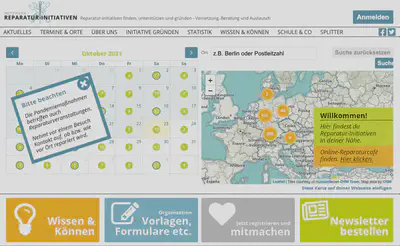
Fixit Clinic
Fixit Clinic is a US initiative that “got out of hand as a hobby” (founder Peter Mui in a YouTube video (00: 21-00: 24)). Fixit Clinic is a “pop-up” activity where people take their broken things apart. The Fixit Clinic provides coaches who guide the participants through the repair process and provide the special tools for the repair.
In addition, Fixit Clinic is known worldwide for its ifixit website, which provides “repair instructions for everything, written by everyone”. The website is an extensive collection of advice and community forums in several languages and offers an online shop for repair tools.
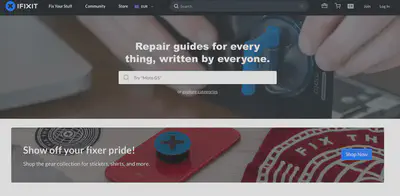
The data is collected using the Broken Item Report form as part of the Fixit Clinic’s community repair events. In addition to the usual information (article, brand, model, year of construction, problem), the form also asks other questions about the defective device, such as information on the exchange of repair experience, the status of the spare parts, and what experiences there were with the support of the manufacturer. The form is a kind of “routing slip” with a constantly updated status report on the item. Both – successful and unsuccessful –repair attempts at the events are entered. Even the owners document their experiences of the daily uses. Fixit Clinic has so far participated in the shared database with 487 data records.
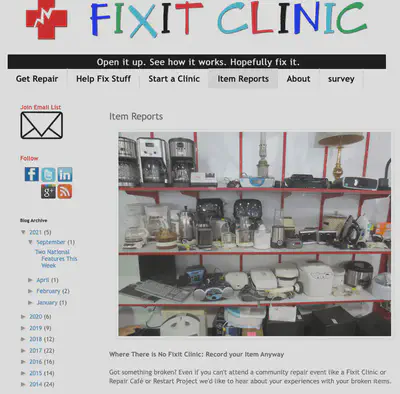
Repair Café Wales
Repair Café Wales opens and supports repair cafés across Wales. Unlike the other grassroots initiatives, this project is funded by the Welsh Government (Welsh Government’s Landfill Disposal Tax Community Scheme) and administered by the Wales Council for Voluntary Action.
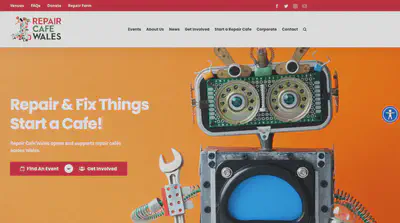
Customers fill out a form after arriving at the repair café. There are different forms to access depending on the repair item: Apparel/Textiles, Bag/Luggage/Purse, Bicycle, Bicycle Accessory, Car Accessory, Furniture, Heater, Home Decor, Jewelry/Accessory, Manual Tool, Misc, Scooter, Electrical Item. As far as I can see from the first page, only the form for the electrical items is different, sporting a list of categories.
So far, 2505 records are documented via the Repair Cafés Wales.
The Restart Project
The Restart Project is a London-based social enterprise. It organizes regular restart parties where participants teach each other how to repair or get their broken or slow devices back on the road. The Restart project specializes in electrical appliances, with the joint training and repair campaign ranging from toasters to headphones to iPhones and tablets.
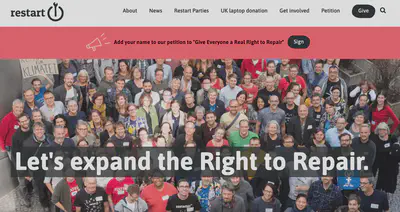
The Restart Project also works with schools and other organizations and is co-founder of the European Right to Repair Campaign. This global movement advocates that everyone has the right to repair the products they own themselves1. The move aims to change the rules for making the devices so that they are easy and affordable to repair. Another concern of Restart is to protect or expand the owners’ rights after the purchase and to combat the planned obsolescence2.
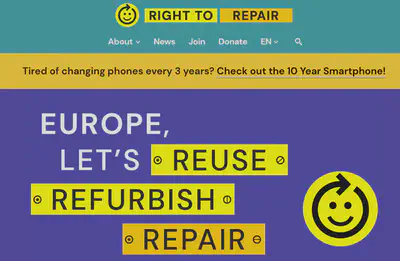
Data is collected at community repair events and recorded in the Restarters.net Fixometer module. Fixometer is the software and database for recording the effects of community repair activities (see also the repository on GitHub). The Restart Project is known for its scientifically-based calculation of the CO2 savings by extending the life cycles of the repaired devices (see the FAQ on the three topics:
How is data collected? How are the calculations made? What can we learn from the data?

Due to their strict methodical approach, only the organizers of the restart parties log the item’s status of the appliances brought to the event for repair. The organizers are also the ones who then enter the results in the Fixometer online database. The Restart Project has already contributed 17,840 data records to the joint data acquisition.
Aim of repairData package
With the data preparation for the large R community, I hope that the data set will attract more attention and be examined more closely by statistics, visualization, and modeling experts. I myself also plan to take a closer look at the data as part of a planned R tutorial project.
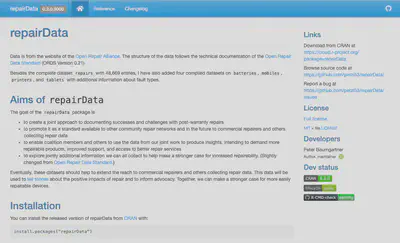
“We are people, we are repairers, we are sustainability activists, we are community. —— We believe products should last longer, and therefore when broken, they should be repaired. This requires products to be designed for repair as well as support for repairers of all kinds. —— We are asking for the right to repair." ↩︎
We talk about planned obsolescence when a manufacturer consciously makes design and manufacturing decisions that results in a limited product life. This doesn’t necessarily mean that products are made to break after a certain period. If a manufacturer designs a product in such a way that it cannot be disassembled, or if they decide not to make spare parts, repair information, or software updates available, they are making a deliberate choice that result in a limited product life – the product becomes obsolete due to the manufacturer’s decision not to support its prolonged use. ↩︎